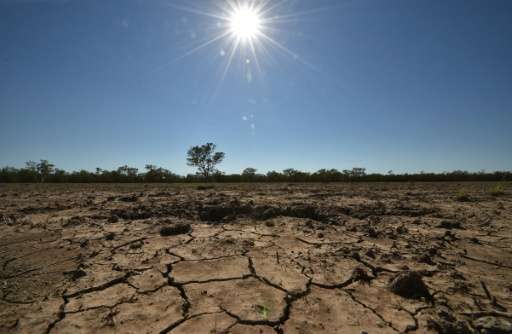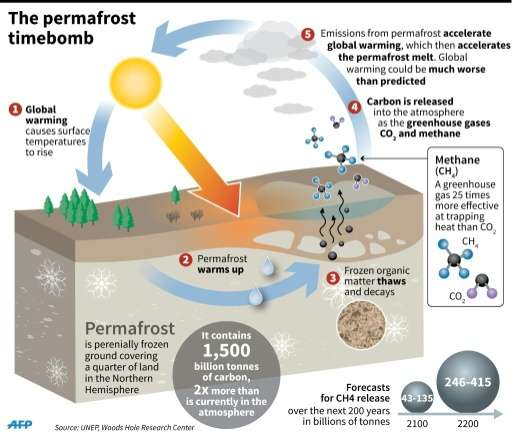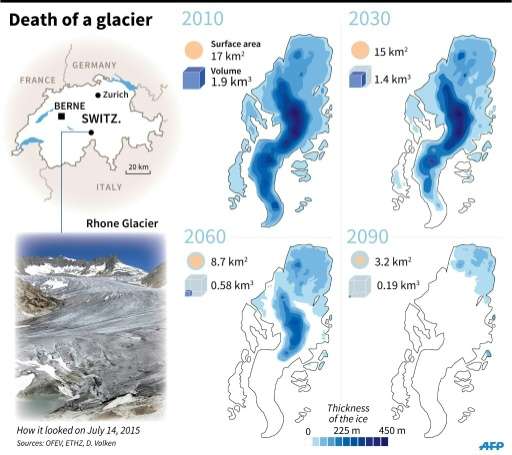Home-stretch climate rescue talks set for Bonn

Officials tasked with crafting a global climate rescue pact gather in Bonn Monday for the final negotiating session before a year-end summit in Paris must seal the deal.
While political momentum, backed by civil society, has coalesced around the goal of reining in runaway global warming, the devil is in the detail.
In this case, that is a new, streamlined blueprint which observers predict will make fur fly when negotiators reconvene.
They will have only five days to thrash out a long list of deeply divisive issues, starting with how to divvy up responsibility for limiting, and adapting to, fossil fuel-driven threats to Earth's climate system.
There is also the question of who should foot the bill.
The session must yield an "advanced draft" to be polished by government ministers and heads of state for adoption at the November 30-December 11 Paris meeting.
"There is a lot to fight for at this meeting next week in Bonn," said climate analyst Alden Meyer, of the Union of Concerned Scientists.
"What the negotiators have to do is ensure that all the options are reflected in the text, that they're whittled down to a manageable few that ministers can grapple with."
After the 2009 UN conference in Copenhagen failed to produce a universal climate deal, nations set a new deadline of 2015 for an agreement that will enter into force in 2020.
The overarching goal is to limit average global warming to two degrees Celsius (3.6 degrees Fahrenheit) over pre-Industrial Revolution levels.
Beyond that, scientists warn, lies climate catastrophe: ever-more violent storms, droughts and land-gobbling sea-level rise.
The global thermometer has already gone up by 0.8 C. US government scientists have declared July the hottest month in history, and said 2015 appears set to overtake 2014 as the hottest year since records began in 1880.

Need to 'ratchet up'
The Paris pact will be underpinned by a roster of national pledges for curbing carbon pollution.
But experts say the nearly 150 submissions received so far from nations accounting for 80 percent of emissions, placed the planet on course for warming closer to 3 C.
"The big issue for Bonn will be establishing an 'ambition accelerator'," climate policy expert Mohamed Adow, of NGO Christian Aid, told AFP.
"It is vital that a review system is created to track the global efforts and strengthen them over time." Yet nations are not agreed on a mechanism to "ratchet up" the pledges—the only way left to stay on the 2 C track.
Another stumbling block is money to help developing nations switch to less polluting energy and adapt to climate impacts, such as rising seas, that can no longer be avoided.
For many developing nations, their emissions-curbing pledges are conditioned on financial aid.
Slimmer blueprint
After two decades of bickering, Bonn will be the last official chance before Paris to haggle over the wording of the agreement.

Since the last meeting in September, the joint chairmen of the talks, Algeria's Ahmed Djoghlaf and Daniel Reifsnyder of the United States, have slashed the blueprint from 80-odd pages to 20.
"This was a very significant step forward," said Greenpeace climate change advisor Jens Mattias Clausen.
However, "this has come at a price: some key pieces are either missing or have become too weak in the text right now," especially provisions for finance and strengthening pledges.
As a result, the meeting is likely to get off to a rocky start, said observers.
Yet, hopes are that negotiators will have been bolstered by political signals in recent weeks that world leaders are committed to a deal, they say.
In September, the United States and China laid out a "common vision" for a "low-carbon transformation of the global economy this century", and in June Pope Francis called on the world to take up the "urgent challenge to protect our common home".
UN chief Ban Ki-moon said Thursday he was "reasonably optimistic" for a positive Paris outcome.
French climate ambassador Laurence Tubiana said she was also hopeful.
"Up until the last, last minute, we will not know what the quality of the agreement will be. But we will have an agreement."
© 2015 AFP



















